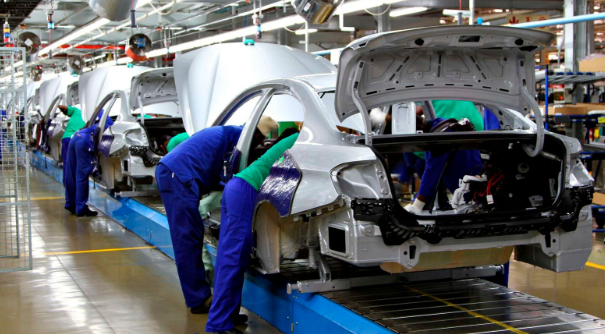Kenya’s automotive industry is undergoing a transformative shift as technological advancements, environmental concerns, and economic growth converge. From the expansion of assembly plants to the increasing adoption of electric vehicles (EVs), 2025 marks a pivotal year for the sector. This article explores key developments, challenges, and opportunities in Kenya’s auto industry and offers insights for both consumers and stakeholders.
1. Growth of Local Assembly Plants
The establishment and expansion of local vehicle assembly plants have been a major boost for Kenya’s automotive industry.
- Key Players: Companies like Isuzu East Africa, Simba Colt, and DT Dobie have been at the forefront of vehicle assembly.
- Government Support: The Kenyan government has provided incentives such as tax breaks to encourage local manufacturing.
- Economic Impact: Local assembly has created job opportunities and contributed to the country’s GDP.
Pro Tip: Vehicles assembled locally often come with lower import duties, making them more affordable for consumers.
2. The Rise of Electric Vehicles (EVs)
As environmental concerns grow, the demand for cleaner and more sustainable transportation solutions is on the rise.
- Current EV Market: Brands like BYD, Nissan Leaf, and Tesla have started making inroads into Kenya.
- Charging Infrastructure: Companies such as NopeaRide are investing in EV charging stations.
- Government Initiatives: The government is working on policies to incentivize EV adoption through tax exemptions and reduced import duties.
Practical Tip for EV Owners
Ensure you have access to a reliable charging station before purchasing an EV. Proper battery maintenance is crucial to extend the lifespan of your vehicle.
3. Challenges Facing the Auto Industry in Kenya
Despite the positive developments, several challenges persist:
a) High Vehicle Costs
- Import taxes and fees make both new and second-hand cars expensive.
- EVs remain costly compared to traditional vehicles.
b) Inadequate Infrastructure
- Limited charging stations hinder the adoption of electric vehicles.
- Poor road conditions in rural areas affect vehicle durability.
c) Policy and Regulatory Framework
- The lack of comprehensive policies on EV adoption and local manufacturing regulations remains a bottleneck.
4. Opportunities for Growth
Despite the challenges, the future of Kenya’s auto industry looks promising.
- Public-Private Partnerships: Collaborations between the government and private sector can accelerate infrastructure development.
- Green Technologies: Investing in EVs and hybrid technologies aligns with global sustainability trends.
- Second-Hand Car Market: Platforms like Auto24 Kenya provide affordable options for car buyers, making vehicle ownership more accessible.
If you’re considering purchasing a second-hand car, explore the wide selection available at Auto24 Kenya. From fuel-efficient models to family-friendly SUVs, there’s something for every buyer.
5. Car Care Tips for Kenyan Drivers
Whether you own a conventional or electric vehicle, proper maintenance is key to longevity.
- Regular Servicing: Schedule routine check-ups to keep your car in top shape.
- Tire Maintenance: Ensure proper tire pressure and alignment to enhance safety and fuel efficiency.
- Battery Care: For EV owners, avoid completely draining the battery to prolong its lifespan.
- Protect Against Weather: Invest in car covers or shaded parking to protect your vehicle from extreme weather conditions.
Conclusion
Kenya’s auto industry is on an exciting trajectory, driven by local assembly expansion and the growing adoption of EVs. While challenges remain, strategic investments and policy reforms can unlock the industry’s full potential. For the latest automotive news, driving tips, and vehicle reviews, visit AutoMag Kenya. Stay informed and ahead of the curve as the auto industry continues to evolve.




